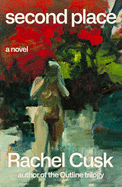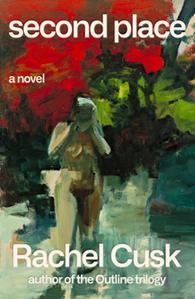
 With her Outline trilogy (Transit; Kudos), Rachel Cusk confirmed her status as a thoughtful, provocative novelist, one that appears even more secure with the publication of Second Place, a psychological novel that's a serious exploration of themes that include female identity and the meaning of art.
With her Outline trilogy (Transit; Kudos), Rachel Cusk confirmed her status as a thoughtful, provocative novelist, one that appears even more secure with the publication of Second Place, a psychological novel that's a serious exploration of themes that include female identity and the meaning of art.
The titular location refers to a cottage the narrator, identified only as M, and her second husband, Tony, have built on reclaimed wasteland adjacent the isolated coastal marsh where they live. Her plan is to use the dwelling as a home for "the higher things, or so I thought them, that I had come to care about one way or another in my life." To further that goal, M impetuously decides to extend an invitation to an artist named L, whose work, she says, "picked me up off the street and put me on the path to a different understanding of life" when she first encountered it on a visit to a Paris museum some 15 years earlier.
There's nothing casual about M's invitation. A writer whose own output has been modest, she's dogged by a lifelong identity crisis. After L initially accepts, and then rejects M's hospitality, he arrives with Brett, a much younger woman whose relationship to him is ambiguous, and forces M's daughter, Justine, and her boyfriend, Kurt--who have moved into the home after losing their jobs due to something that sounds like the coronavirus pandemic--to vacate the property.
In an unbroken monologue delivered to a listener identified only as Jeffers, M pours out the story of L's disturbing visit. Far more interesting than the novel's relatively modest external action is the stream-of-consciousness coursing through M's head. It's an unsparing, at times devastating portrait of one middle-aged woman's profoundly damaged self-image and her failed dreams.
Cusk meticulously charts the rising tension between L and M, ratcheting up the suspense as the two come into a conflict that L, an enigmatic man "without any fibre of morality or duty," seems to have sought from the beginning and that involves a shocking amount of asymmetric psychological warfare. M watches helplessly as L wields his power to "cast me into doubt and to expose in myself what was otherwise shrouded over," even as she recognizes how he "drew me with the cruelty of his rightness closer to the truth." Cusk is a patient, elegant writer, in some respects like her creation M, who admits she needs to "get at the truth of a thing and dig and dig until it is dragged painfully to light." Second Place is the admirable product of that determination. --Harvey Freedenberg, freelance reviewer
Shelf Talker: In this meticulous and provocative psychological novel, a troubled woman's encounter with a powerful artist sparks a profound crisis.

